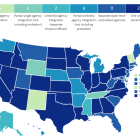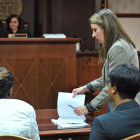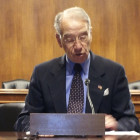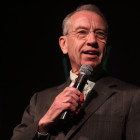
Gov. Cuomo Commish: New York State Should Raise the Age to 18
|
New York state should raise the age that youths can be tried and convicted as adults to 18, a commission appointed by Gov. Andrew Cuomo recommended Monday. Cuomo, speaking in Albany, said he planned to propose the recommendations of the Governor’s Commission on Youth, Public Safety & Justice as a legislative package to the State Assembly. In a 164-page report, the commission said its recommendations would reduce by 1,500 to 2,400 the number of crimes against people across the state every five years while saving taxpayer dollars. And pointing to states including Connecticut and Illinois that have raised the age of criminal responsibility, the report said recidivism and juvenile crime rates can be lowered through “evidence-based” interventions that steer nonviolent young offenders out of the juvenile justice system and into family mental health or other services. “Extensive research on the significant negative impacts on adolescents of incarceration in adult jails and prisons has brought a sense of urgency for reform,” the report stated.










